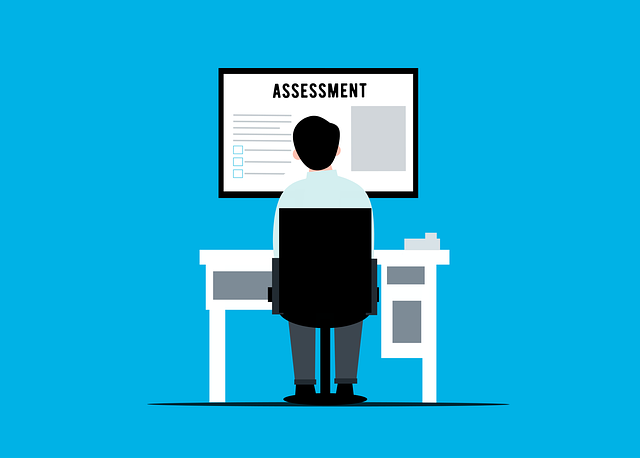Stringent UK environmental regulations demand thorough Environmental Impact Assessments (EIAs) for project compliance and ecological preservation. Translation services are vital to navigate complex requirements, ensuring assessments cover ecological, social, and economic impacts while mitigating legal risks. Professional translators with expertise in environmental science and law provide accurate, accessible evaluations, fostering inclusive stakeholder engagement and promoting sustainable development. High-quality translations are key to meeting UK standards and avoiding legal repercussions for project managers and developers.
In the UK, environmental impact assessments (EIAs) are paramount for balancing development with ecological preservation. To ensure compliance with stringent national standards, thorough and accurate assessments are essential. This article guides you through every aspect of effective EIAs, from understanding UK regulations to leveraging translation services for cross-border projects. Learn about data interpretation, sectoral requirements, stakeholder engagement best practices, legal implications, quality assurance tools, and more, ensuring your assessments meet the highest standards. Discover how translation services play a critical role in navigating diverse environmental landscapes across the UK and beyond.
- Understanding UK Environmental Impact Assessment Standards
- Key Components of Effective Environmental Assessments
- The Role of Translation Services in Compliance
- Ensuring Accurate Data Interpretation and Analysis
- Addressing Specific Sectoral Requirements
- Best Practices for Stakeholder Engagement
- Legal Implications of Inaccurate orIncomplete Assessments
- Tools and Resources for Quality Assurance
- Continuous Improvement in Assessment Methods
Understanding UK Environmental Impact Assessment Standards

The UK has stringent environmental impact assessment (EIA) standards that are designed to ensure any development project considers its potential effects on the natural environment. These standards are crucial for balancing economic growth with ecological preservation, reflecting the country’s commitment to sustainable development. Translation services play a vital role here by enabling non-native companies and investors to navigate these complex regulations effectively.
Understanding the UK’s EIA requirements involves familiarizing oneself with legislation such as the Environmental Impact Assessment Regulations 2017. These guidelines outline when an assessment is needed, what information should be included, and who needs to carry out the evaluation. Staying abreast of updates and amendments ensures compliance and helps avoid potential delays or legal issues during project implementation.
Key Components of Effective Environmental Assessments

Effective environmental assessments are multifaceted and critical in ensuring compliance with UK standards. Firstly, they must encompass a thorough Environmental Impact Assessment (EIA) that identifies and predicts potential ecological, social, and economic impacts. This includes gauging the project’s effects on air quality, water resources, biodiversity, and nearby communities. Translation services for UK Environmental Impact Assessments play a pivotal role in ensuring these evaluations are comprehensive and accessible to all stakeholders, regardless of language barriers.
Secondly, robust assessments require a detailed analysis of baseline environmental conditions, including historical data and current state assessments. This context is essential for gauging the significance of potential changes brought about by development projects. Additionally, involving local communities and consulting relevant authorities ensures that assessments are holistic, considerate of diverse perspectives, and aligned with national regulatory frameworks.
The Role of Translation Services in Compliance

Translation services play a vital role in ensuring that environmental assessments comply with UK standards. With regulations and terminology varying across languages, accurate translations are essential to maintain consistency and adherence to legal requirements. Professional translation services for UK Environmental Impact Assessments (EIAs) involve more than just word-for-word substitutions; they require translators with specific expertise in environmental science and law to convey technical concepts accurately.
These services facilitate effective communication by bridging the language gap, ensuring that all stakeholders, including regulatory bodies, have access to clear and comprehensive assessments. High-quality translations help avoid misinterpretations, reduce risks of non-compliance, and promote transparency throughout the assessment process.
Ensuring Accurate Data Interpretation and Analysis

Accurately interpreting and analyzing data is paramount in conducting UK Environmental Impact Assessments (EIA). This involves meticulous examination of various factors, including ecological impact, community health, and economic effects. Professional translation services play a vital role here by ensuring that all data, especially from international sources or non-English documents, are correctly understood and incorporated into the assessment. These services help avoid critical errors and misinterpretations that could lead to inadequate conclusions.
When selecting translation providers for EIA, it’s crucial to pick those with environmental expertise. This specialized knowledge allows translators to grasp complex ecological concepts and terminologies accurately. Reputable translation firms often have native-speaking environmental professionals on staff, guaranteeing both linguistic proficiency and an in-depth understanding of the subject matter. This dual expertise is essential for delivering reliable translations that align perfectly with UK standards.
Addressing Specific Sectoral Requirements

Environmental assessments are not one-size-fits-all, and different sectors have unique requirements. This is where professional translation services play a vital role in ensuring compliance with UK standards. When navigating complex regulations, accurate and precise communication is key. For instance, in construction or energy projects, specific environmental considerations must be addressed, such as noise pollution control, habitat preservation, and carbon footprint reduction strategies.
Translation experts can help adapt these assessments to the UK context, considering regional variations and legal frameworks. They ensure that technical documents accurately convey critical information related to biodiversity, air quality, and water management, among other sectors. By leveraging translation services, organizations can streamline their assessment processes, avoid potential legal pitfalls, and contribute to sustainable development practices in line with UK regulations.
Best Practices for Stakeholder Engagement

Effective stakeholder engagement is a cornerstone of robust environmental assessments, especially in the context of UK standards and regulations. It’s crucial to involve all relevant parties throughout the process, ensuring their voices are heard and considerations are addressed. This includes local communities, indigenous groups, businesses, government agencies, and experts from diverse fields.
Best practices involve transparent communication channels, public meetings or forums for open dialogue, and accessible documentation. Translation services for UK Environmental Impact Assessments play a vital role in breaking down language barriers and ensuring non-English speakers can actively participate. This inclusive approach not only strengthens the assessment’s accuracy and relevance but also fosters trust, collaboration, and buy-in from all stakeholders, ultimately leading to more sustainable outcomes.
Legal Implications of Inaccurate orIncomplete Assessments

Inaccurate or incomplete environmental assessments can have significant legal implications, particularly in the UK where stringent regulations govern such processes. These regulations are designed to protect ecosystems and communities from potential harm caused by development projects. If an assessment falls short of the required standards, it may lead to legal consequences for the responsible parties. Developers and project managers must ensure their assessments are thorough and compliant to avoid delays, fines, or even legal action.
Translation services play a critical role here, especially when assessing multinational projects or those involving diverse language requirements. Accurate translation ensures that every aspect of the assessment is properly conveyed, reducing the risk of errors due to linguistic misinterpretations. This is particularly important for UK Environmental Impact Assessments (EIA), where compliance with local regulations and standards must be demonstrably clear and precise.
Tools and Resources for Quality Assurance

Ensuring the accuracy and quality of environmental assessments is paramount, especially when adhering to stringent UK standards. One effective strategy involves leveraging dedicated tools and resources for quality assurance (QA). These include specialized software designed to check for consistency, identify potential gaps, and ensure compliance with regulatory criteria. For instance, translation services play a vital role in UK Environmental Impact Assessments (EIA), guaranteeing that all data and analyses are conveyed clearly and accurately across diverse linguistic barriers.
Moreover, organizations often turn to expert consultancies and peer review processes to enhance QA. These services provide an independent perspective, identifying areas for improvement and ensuring the assessment’s integrity. Regular training sessions and workshops also empower assessors to stay updated on best practices, new guidelines, and industry trends, fostering a culture of continuous improvement in environmental assessments.
Continuous Improvement in Assessment Methods

The field of environmental assessments is continually evolving, with new methodologies and standards emerging to better address complex ecological issues. In line with this, translation services for UK Environmental Impact Assessments play a crucial role in ensuring that assessment methods keep pace with global best practices. Professionals involved in these assessments must remain agile and adaptable, embracing continuous improvement. This involves staying abreast of regulatory updates, integrating cutting-edge scientific knowledge, and adopting innovative tools to predict and mitigate environmental impacts.
By doing so, they can produce more comprehensive and accurate evaluations, ultimately enhancing the quality and effectiveness of UK Environmental Impact Assessments. Continuous improvement not only meets the evolving demands of regulators but also fosters a deeper understanding of ecological systems, leading to more sustainable development practices.
Ensuring your environmental assessments meet UK standards is paramount for responsible development. By understanding key components, leveraging translation services for accuracy, and adopting best practices for stakeholder engagement, you can achieve compliance. Continuously improving assessment methods and relying on quality assurance tools are essential to mitigate legal implications of inaccurate or incomplete work. Remember, effective Environmental Impact Assessments require a multifaceted approach that includes addressing sectoral requirements and embracing innovative solutions like translation services for UK Environmental Impact Assessments.
